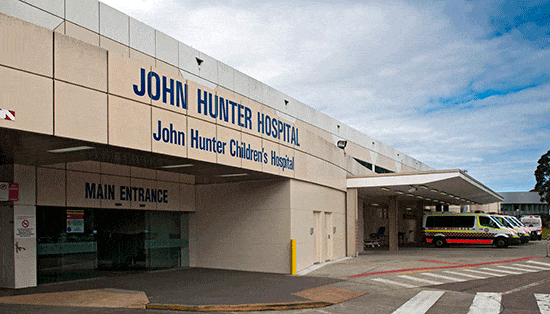
John Hunter Children’s Hospital has participated in a landmark international study dedicated to investigating a rare liver condition.

For the past 18 months John Hunter Children’s Hospital has participated in a landmark international study dedicated to investigating a new treatment for lysosomal acid lipase deficiency, a rare liver condition. Findings from the first phase of the study have just been published in the prestigious New England Journal of Medicine and they’re very positive.
Hunter Medical Research Institute researcher Dr Scott Nightingale, Paediatric Gastroenterologist at John Hunter Children’s Hospital, learnt about the study at a conference and thought immediately of a 12-year-old patient with this condition.
“Lysosomal acid lipase deficiency is a very rare condition and until now there has been no proven effective treatment for it,” Dr Nightingale said.
“Patients with the deficiency do not naturally produce an enzyme that is normally created in our white blood cells. Without this enzyme, patients accumulate fat and cholesterol in their liver. This results in progressive liver damage that leads to scarring in the liver, called cirrhosis. They also have abnormally high cholesterol levels in the blood, with high rates of cardiovascular disease and stroke in early adult life.
“For my patient and his family, the opportunity to participate in a study that had the potential to change his future was invaluable.”
The first phase of the study looked at the effectiveness of a drug called sebelipase alfa, an artificial version of the enzyme missing in patients with this condition. John Hunter Children’s Hospital had one of four patients in Australia and only 65 around the world who participated in the study.
“For the first 20 weeks patients visited their respective hospitals around the world and were administered an infusion of either the drug or a placebo,” said Dr Nightingale. “After 20 weeks we were told that our patient was in fact receiving the sebelipase alfa and his results showed significant improvement.
“His blood tests of liver function and cholesterol levels had completely normalised and an MRI scan showed the fat had gone from his liver. These findings were found in the other patients receiving the active drug, and side effects were no different between those who received the drug and those who received placebo.”
“Not only have we had the opportunity to participate in a landmark study that has changed the way we think about managing this previously untreatable disease, but we’ve also turned back the clock in terms of health risks for this young man.”
All 65 participants, including those initially on the placebo, are continuing on with the active drug as part of a longer term study.
* Dr Nightingale researches in conjunction with the HMRI VIVA Research Program. HMRI is a partnership between the University of Newcastle, Hunter New England Health and the Community.
HMRI would like to acknowledge the Traditional Custodians of the land on which we work and live, the Awabakal and Worimi peoples, and pay our respects to Elders past and present. We recognise and respect their cultural heritage and beliefs and their continued connection to their land.

Hunter Medical Research Institute
We’re taking healthy further.
Locked Bag 1000
New Lambton
NSW, Australia, 2305



This site is protected by reCAPTCHA and the Google Privacy Policy and Terms of Service apply.
Copyright © 2024 Hunter Medical Research Institute | ABN: 27 081 436 919
Site by Marlin Communications
